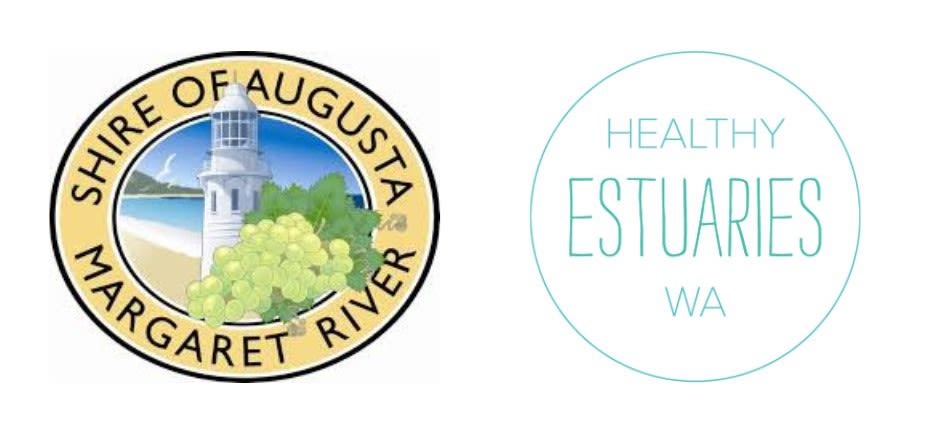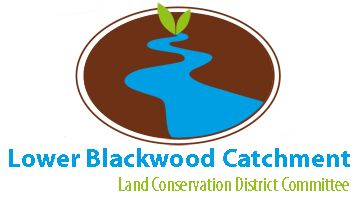Brooklands Farm, Witchcliffe, Western Australia
Farmer Case Study
Regenerative Agriculture in Practice Project (RAPP) 2022
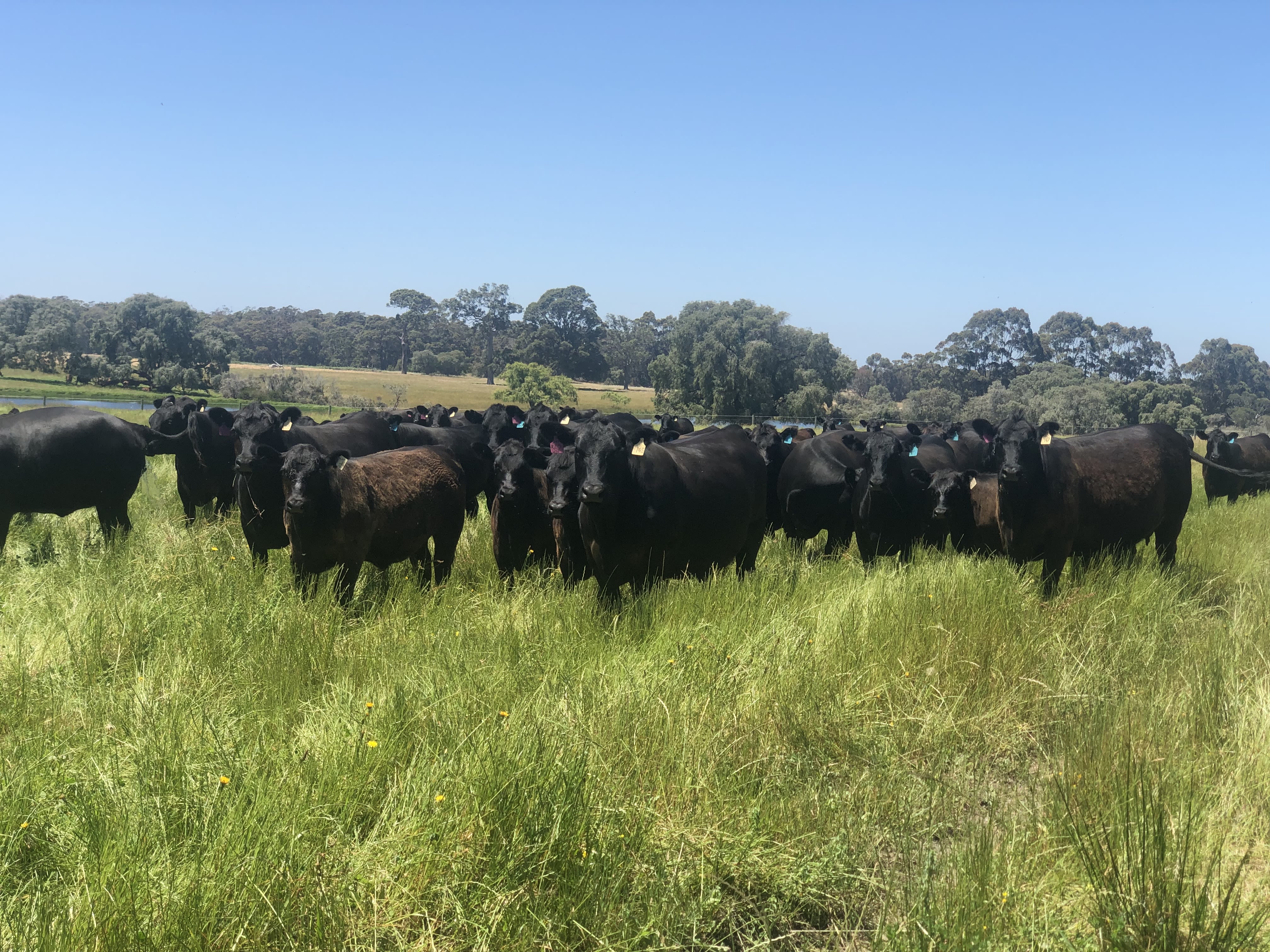
Pete Wright, Beef Farmer
'Brooklands', the Wright family farm, covers 130 Ha in Witchcliffe, around 15km south of Margaret River.
The farm has been in the family for three generations, however was leased out for 10 years while Pete built a career in education. But his heart was still yearning for a life on the land, and even a role leading the local high school's farming education program wasn't quite enough.
Sadly, the farm didn't flourish under the lease arrangement, and there was a lot to do when Pete took over again in April 2020.
Brooklands has mostly gravelly loam soils, with fairly minimal remaining vegetation and bushland. A creek runs through the middle of the block, feeding lush pastures for summer grazing on the lower areas.
Pete now has 40 breeders and is looking to grow his stock as he rehabilitates the farmland.
As a new Dad Pete's goal is to run the farm commercially so he can have the flexibility of spending time with the family, but he recognises that the first step is to focus on his soils and pastures.
He is currently leasing out half of the farm and concentrating the Regenerative Grazing principles on a smaller, more manageable area.
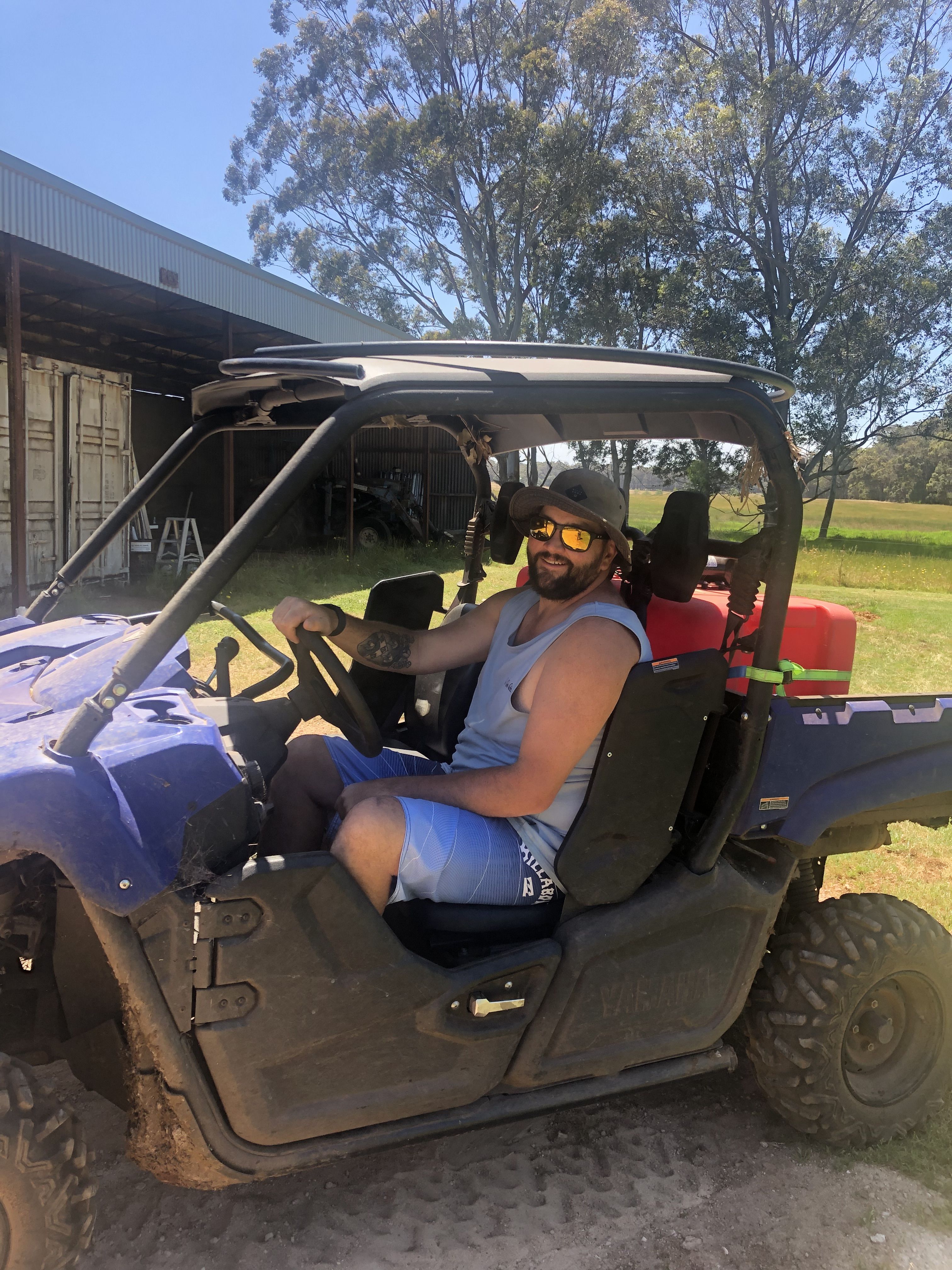
FACT FILE
|
Project name: |
Regenerative Agriculture in Practice (RAPP) 2022 |
|---|---|
|
Landholder: |
Peter Wright |
|
Location: |
Witchcliffe, Western Australia |
|
Property Size: |
150 Ha |
|
Enterprise: |
Beef |
|
Av. Rainfall: |
951.7 mm |
|
Climate: |
Mediterranean |
Why Regen Ag?
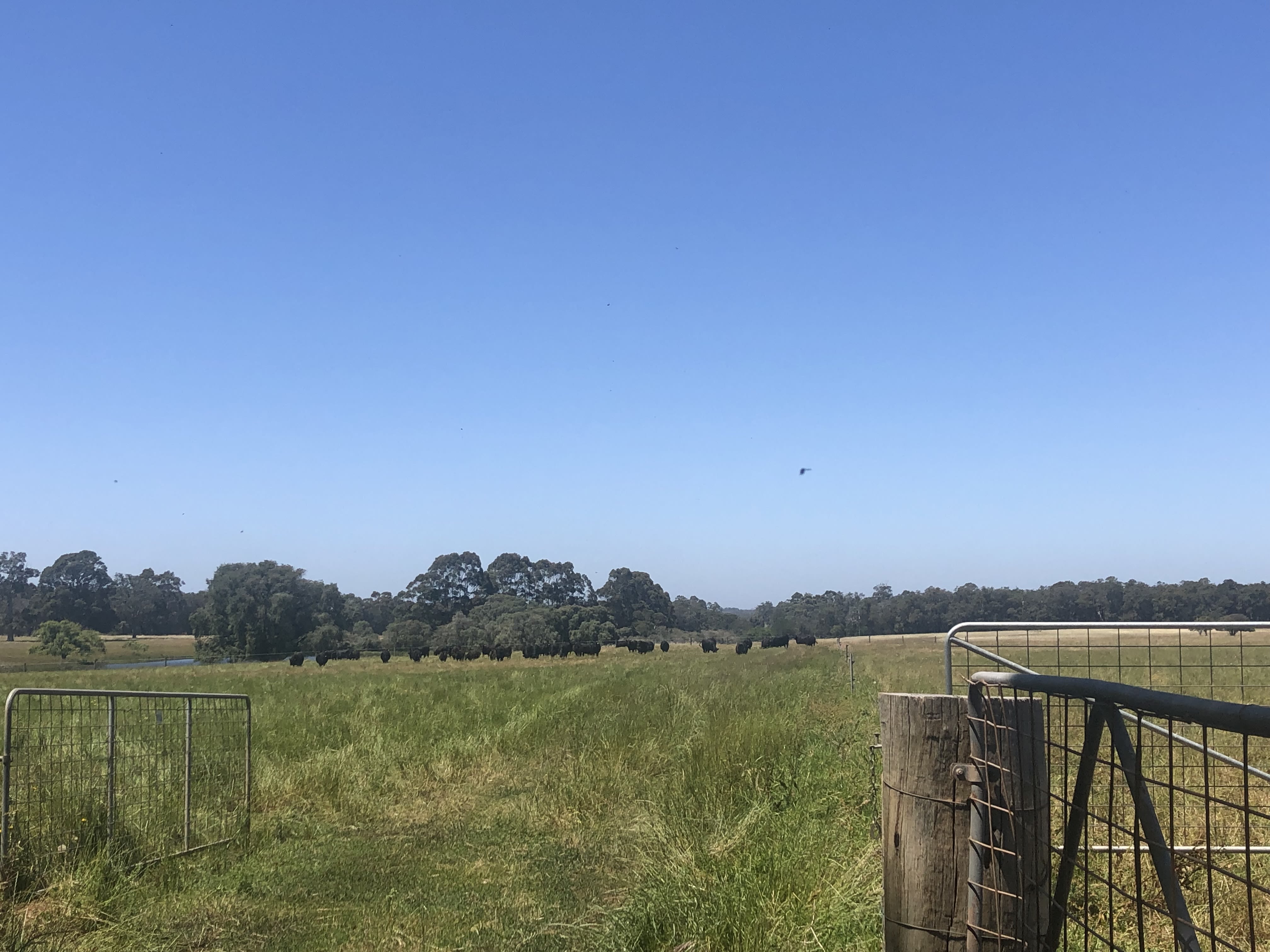
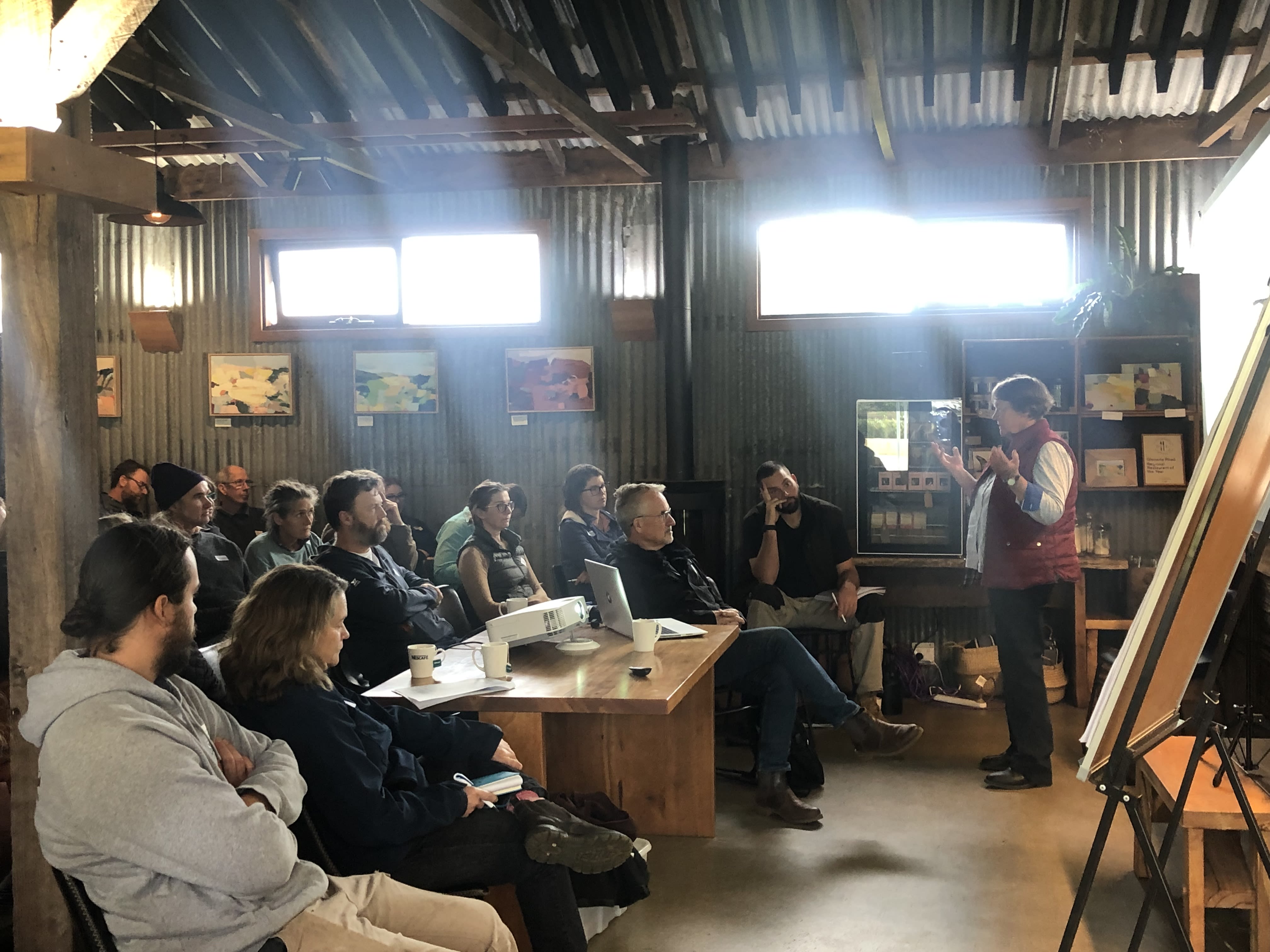
Genuine interest
Pete was already interested in the principles and practices of regenerative agriculture, and had read widely about progress over in the eastern states. He intrinsically felt that it would be a better way of farming - both ethically and commercially - and was keen to work with a proactive group of local farmers to find out more.
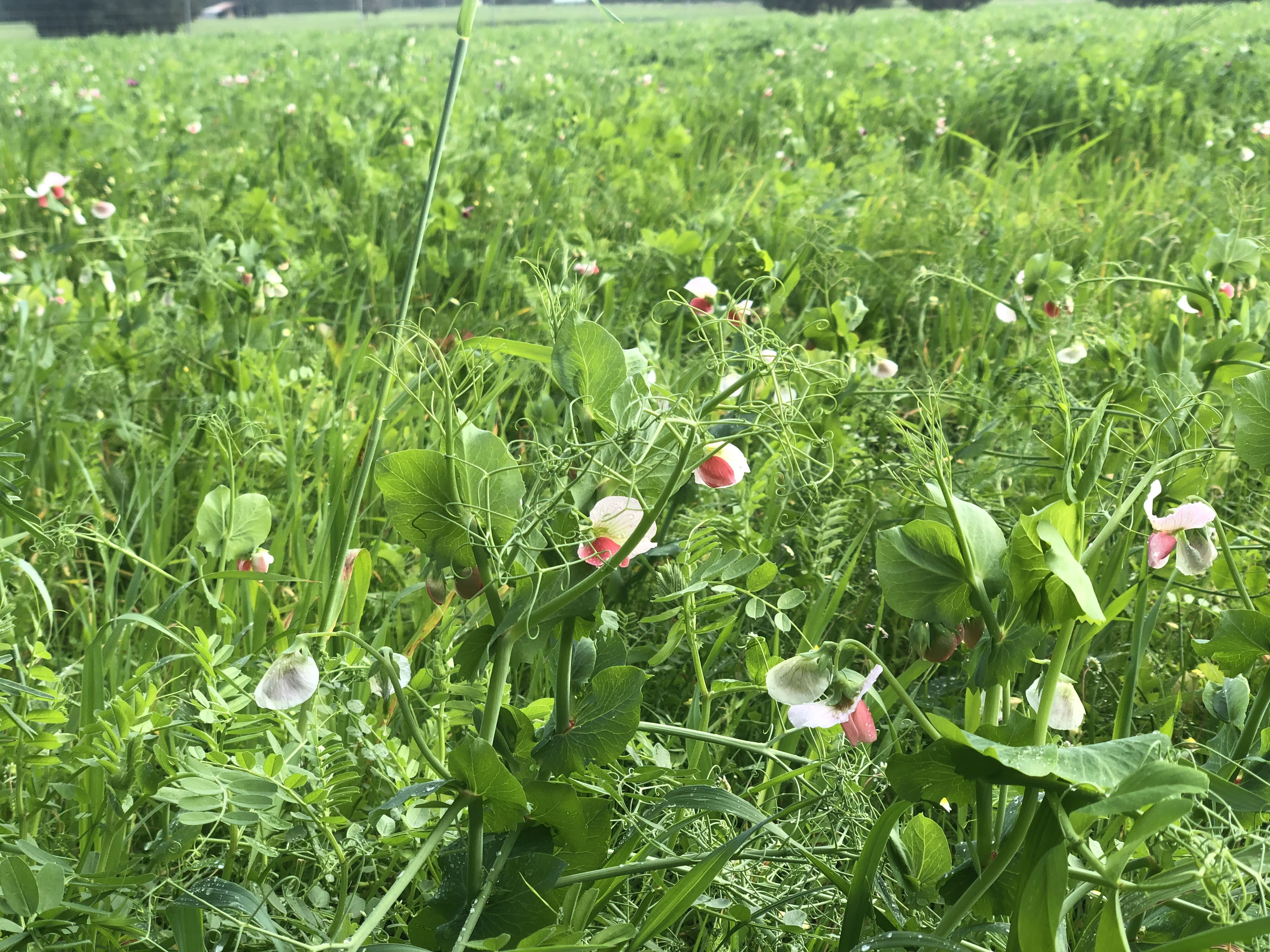
Perennials v annuals
In WA, there's a strong focus on annual species, but Pete felt that there could be some significant benefits to introducing perennials to improve pastures. The chance to discuss these practices with visiting experts of Dr. Judi Earl's calibre was way was too good an opportunity to miss.
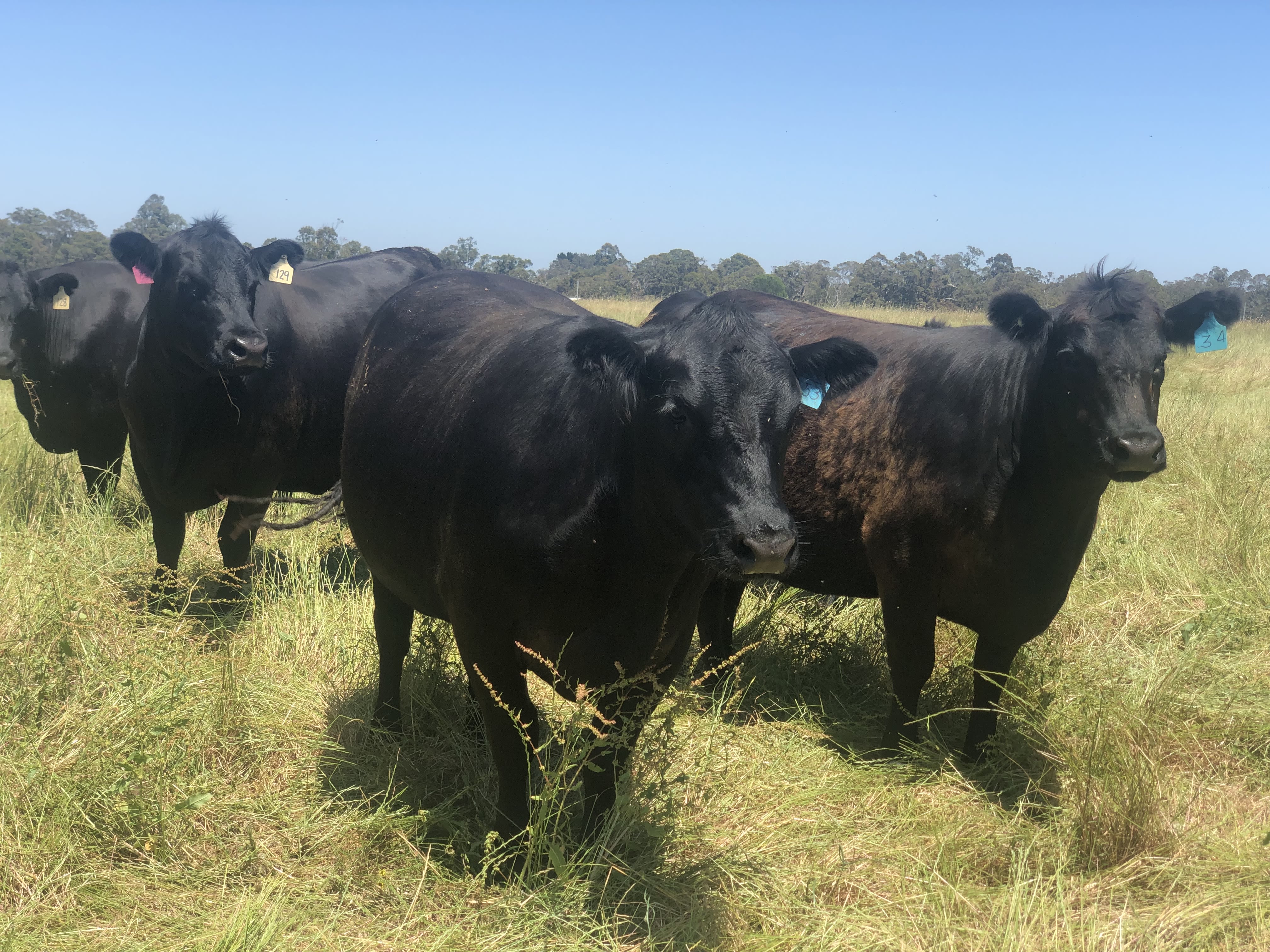
Reduced reliance on chemicals
As a former dairy farmer, Pete knew how much farmers relied on chemicals for fertilisers, pest management, treating animals and as feed additives. He was looking for a farming system that would be gentler on both his stock and his land and based on the reading and research he'd done, he felt that the Regenerative Agriculture Program could offer some alternatives.
Challenges to Change

Finance
For Pete, the biggest challenge to implementing the changes he wants to make is finance. Although he's dedicated to the concepts of regenerative agriculture, the farm isn't turning over any money, so investment is hard.
Timing
Pete describes his timing as a bit 'out of whack' this season. He's put lime and dolomite into the paddocks, but they just weren't ready for seeding so he missed the season
Fencing priorities
The first and most vital step in the plan was fencing. Focusing on this has meant that other steps in the plan had to wait.
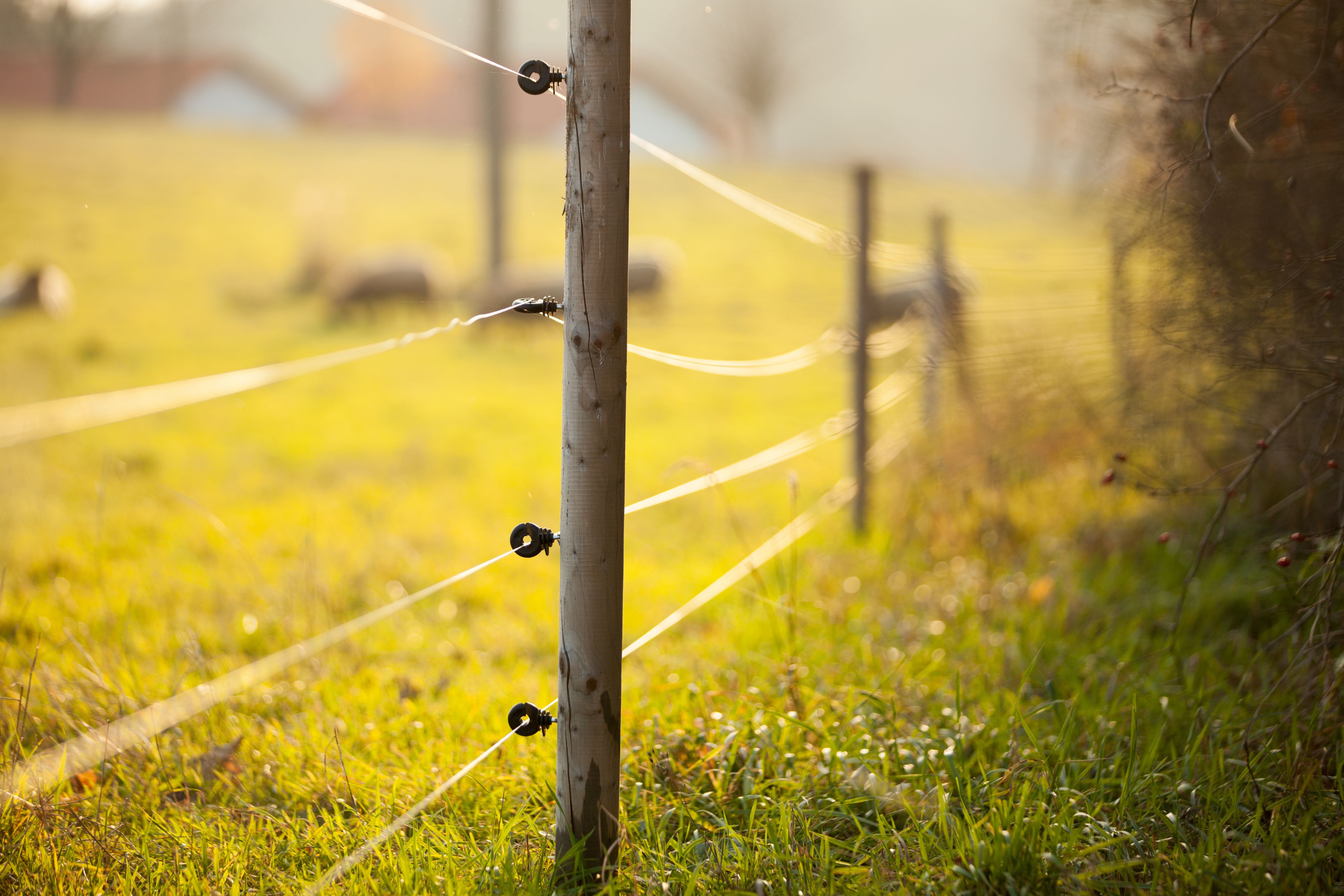
Practice Changes
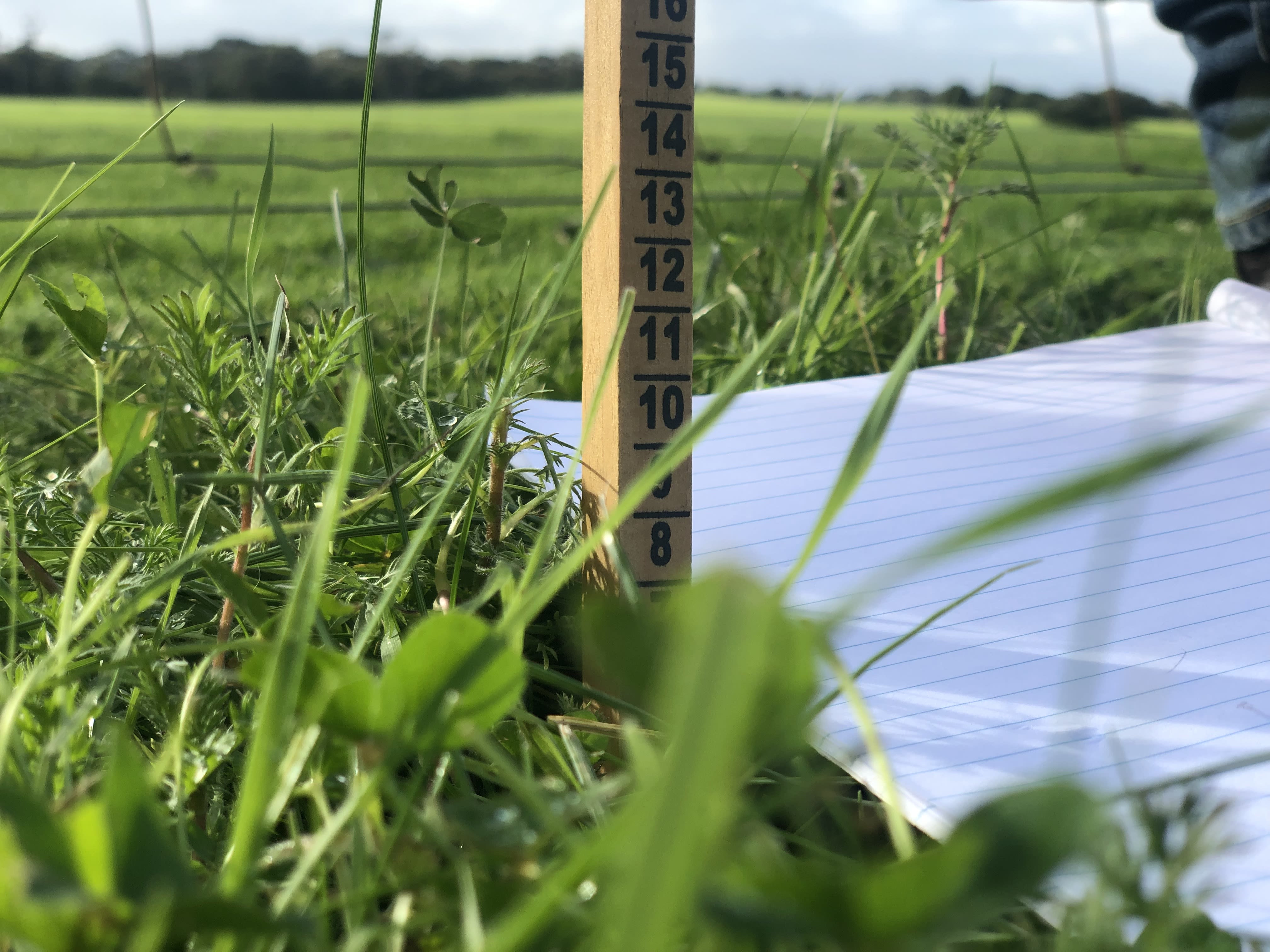
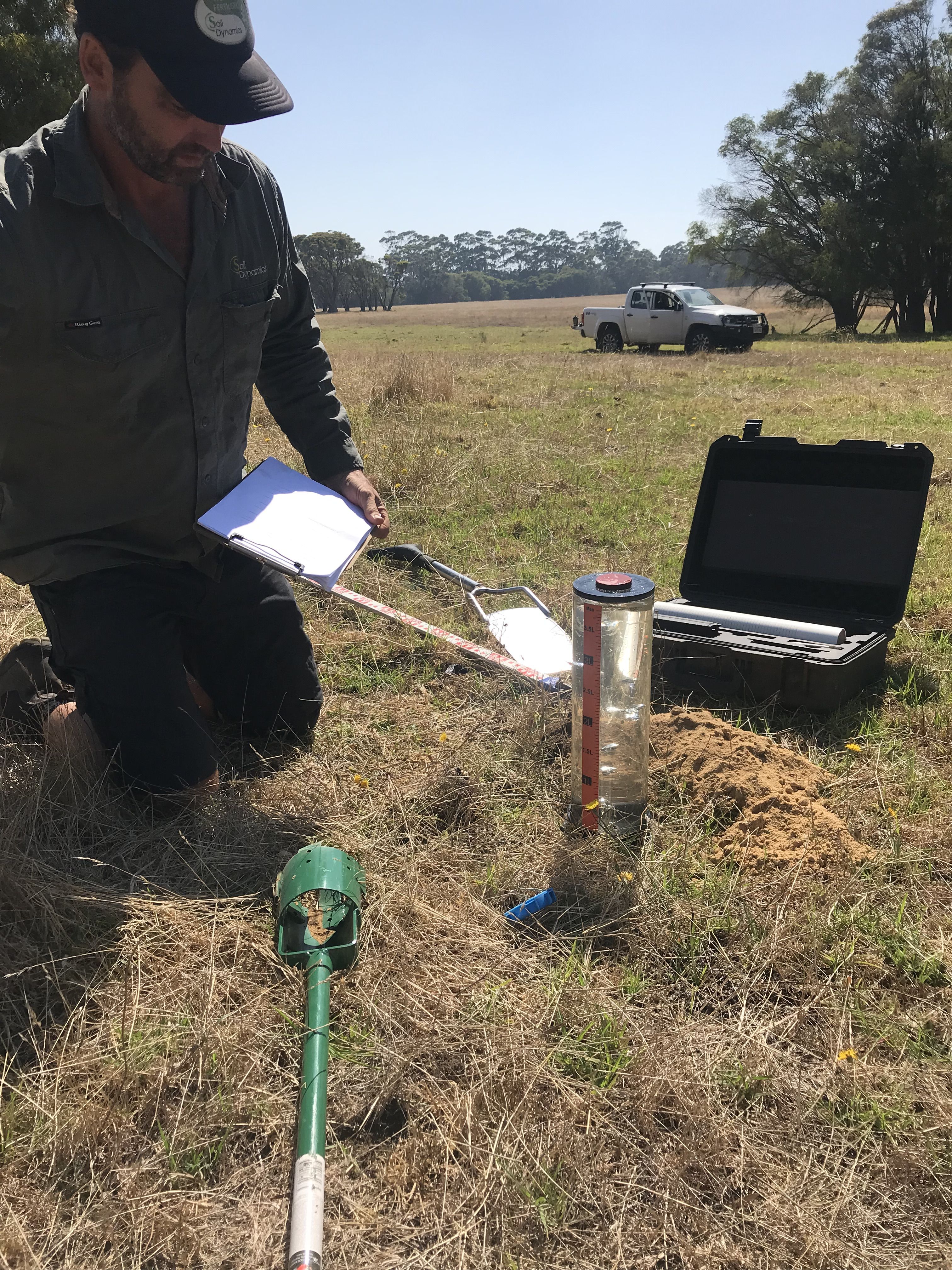
Soil Health Improvements
As a former dairy farmer Pete already had a feel for soil health, but regular soil testing was a practice that he's now taken on board as a vital part of his farm management campaign.
Anthony Quinlan is a local agronomist and specialist in organic agriculture, horticulture and soil health in WA. His shared insights into ways to improve soil health have had a significant impact on Pete's farming practices.
"Having Anthony's advice early in the program was a huge help in improving soil health straight away."
The program kicked off with participants providing soil samples which were analysed by a laboratory to give all participants a detailed breakdown of their soil profiles, outlining both positives and negatives. Anthony reviewed all the samples and analysis, giving detailed advice about how to mitigate issues, and potentially improve soils ready for the growing season.
Even though Pete admits that his paddocks were a bit 'out of whack' for a seeding this season, the advice from Anthony has helped with building his soil health ready for next season.
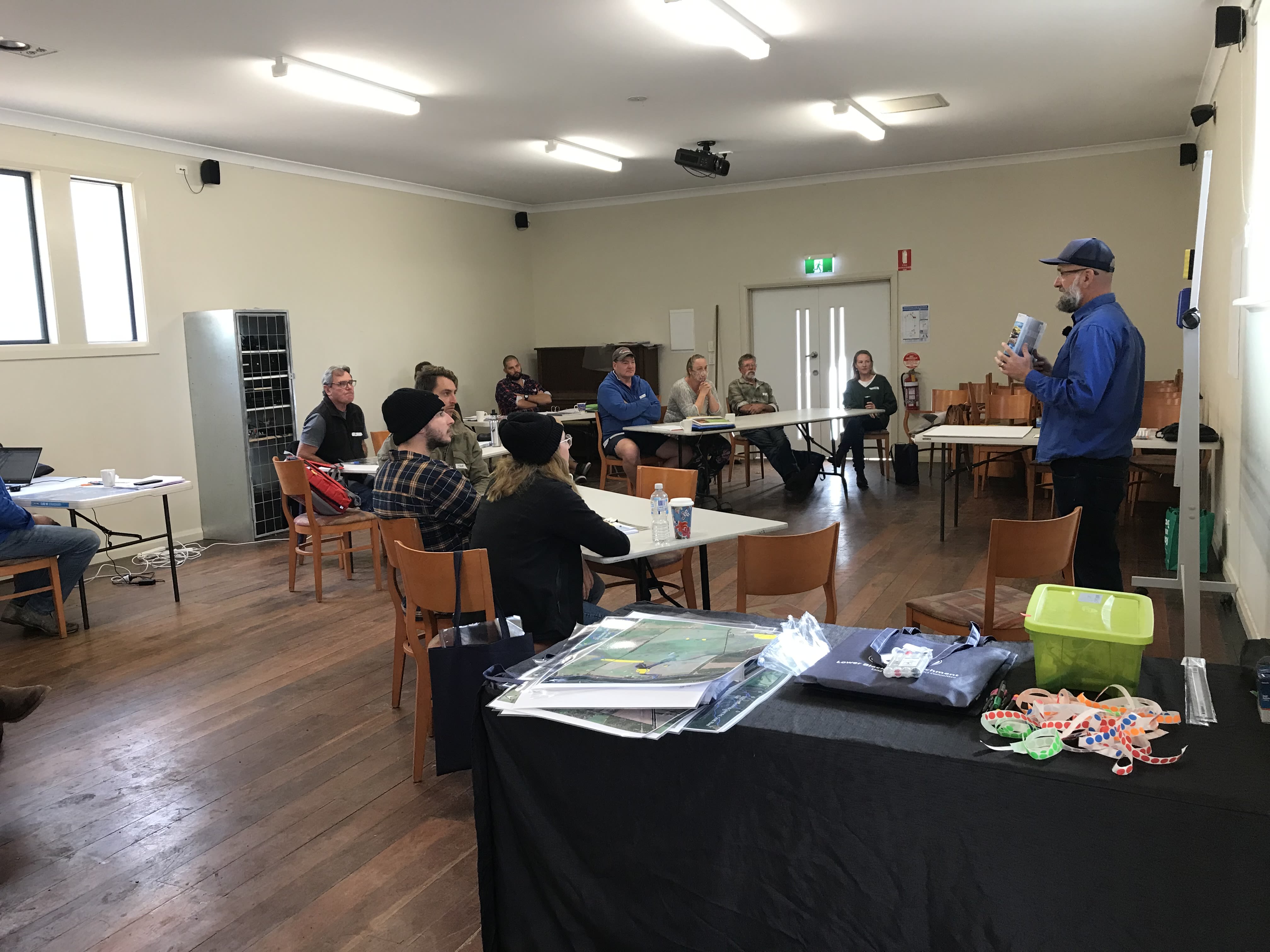
Whole Farm Planning
David Hardwick, an agroecologist with over 20 years' experience in rural landscapes led a four-day course on planning a healthy, resilient and productive farm business. The hands-on workshops helped Pete look at the whole property, strip the layers back, and break the entire project into manageable, bite-sized pieces. A run-down farm, a new baby and a big dream meant a huge amount of work, which could have been overwhelming, but the practical guide to planning the farm in a way that fit with the other demands on Pete's time was incredibly valuable. He now has a workable, flexible 10 year plan.
"I've already implemented a heap of David Hardwick's information. I learned so much in those four days!"
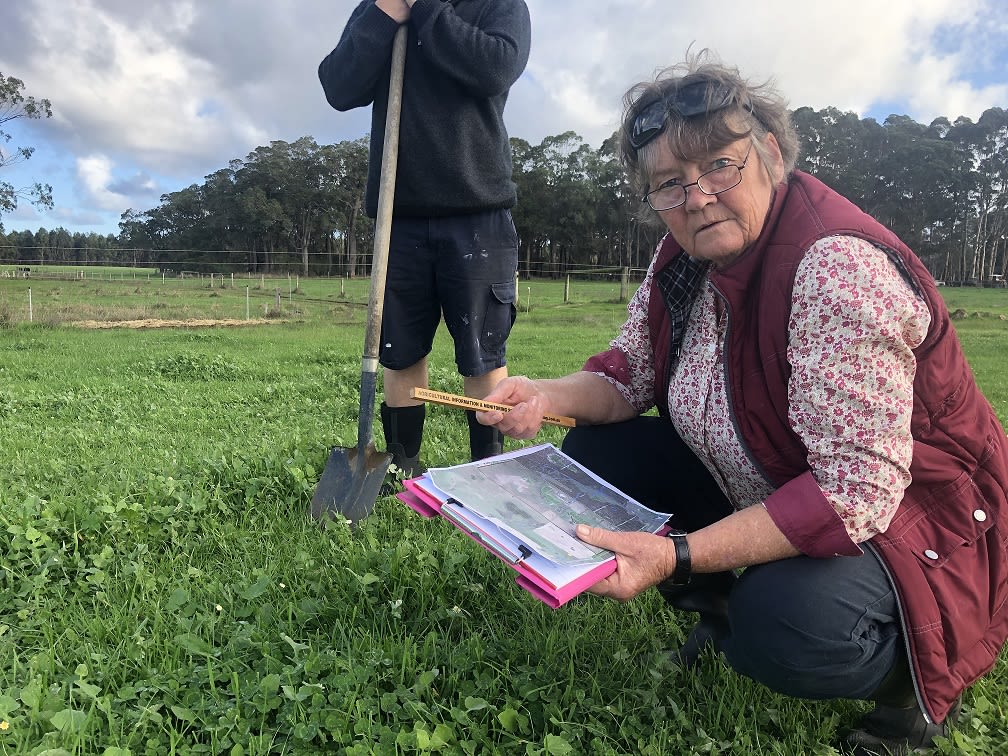
Regenerative Grazing Practices
"Judi was an amazing source of knowledge."
This year, Pete has introduced rotational grazing to maximise the positive impact of his stock on the pasture and help with controlling parasites.
Dr. Judi Earl (a leader in the practice of using livestock to improve soil depth and health, water retention increased biodiversity and animal production) spent time at Pete's farm and together they developed a bespoke grazing program to revitalise the pastures.
"I've really taken note of her advice on what feed I have on hand, what I need to put away and what to leave standing for summer. I probably haven't done as much as she'd like, but Probably not to the level she'd like, but I've definitely taken her advice on board."
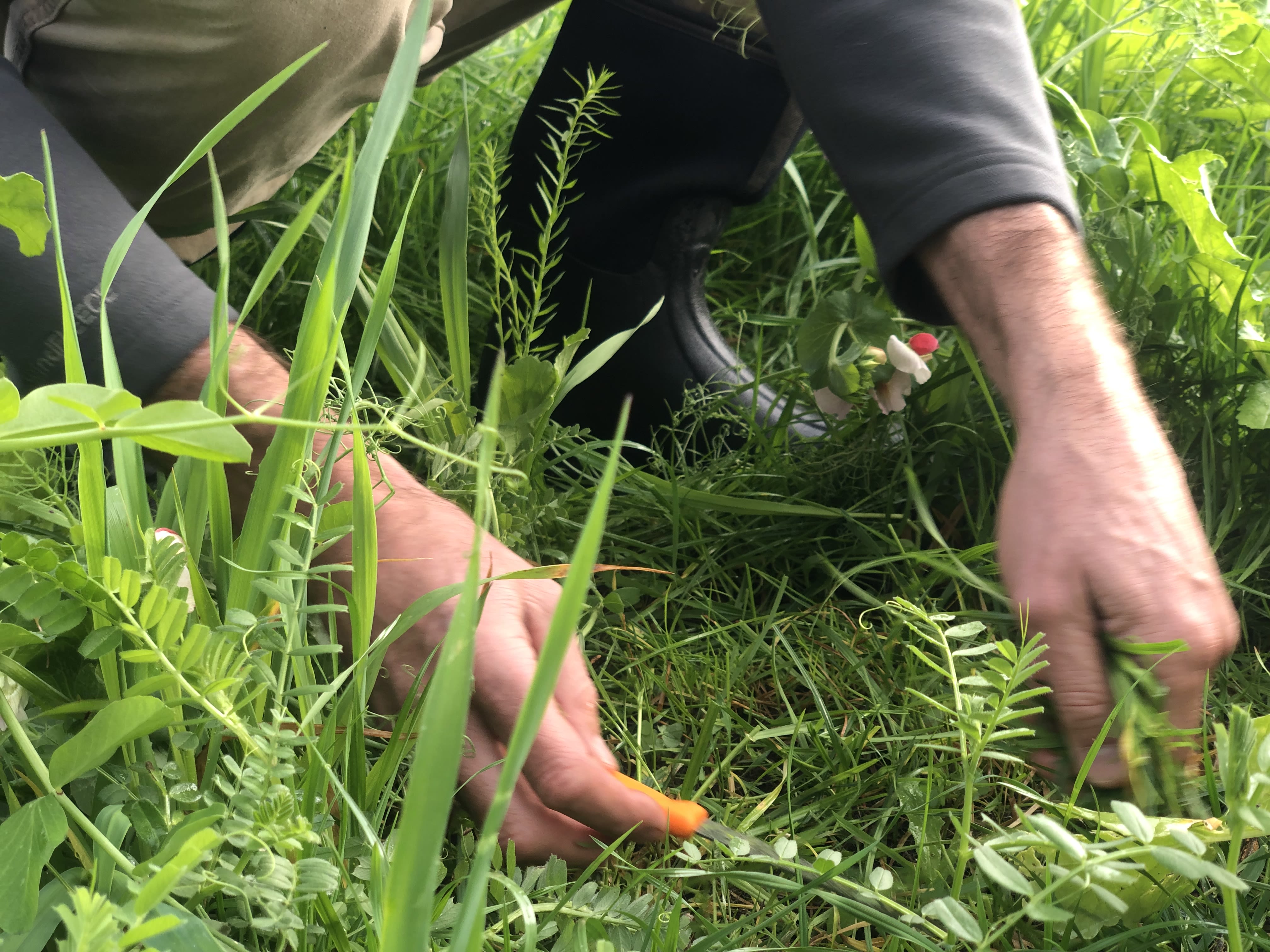
Multi-seeding pastures
The three trial sites in the program showed what worked, and what didn't, based on different seeding times and seed mixes.
Pete could see how a more diverse and perennial pasture mix could have a very positive impact on his land. Realising that WA farmers could challenge the notion that we are an annual based pasture system was 'super-exciting'.
Pete wasn't ready to seed this year, but he hopes that seeding multispecies mixes in spring and autumn could have a significant impact on the development of biological soils, as well as improving the quantity and quality of forage for his stock.
"It looks like this could be a way to improve pastures and nutrition, as well as increase feed capacity throughout the year, which is a great option with the steep rises in fertiliser costs."
"Doing the right thing"
For Pete, regenerative agriculture is more than just a commercial farming technique. He feels it's 'the right thing to do'.
"When you start diving into the regen world and start using regenerative farming principles on your land, soils and pastures it's really good for you as well. I've put a lot into this place, and it's paid me back ten-fold. Not financially yet, but personally. It's improved my physical and mental health."
"It's all positive. There's nothing negative about regenerative farming. Cutting the chemicals is such a good thing."
Pete's workload has already decreased and he's shifting his cows every day.
"I'm really happy to go out and move my cows every day. Now, everything's low stress and easy."
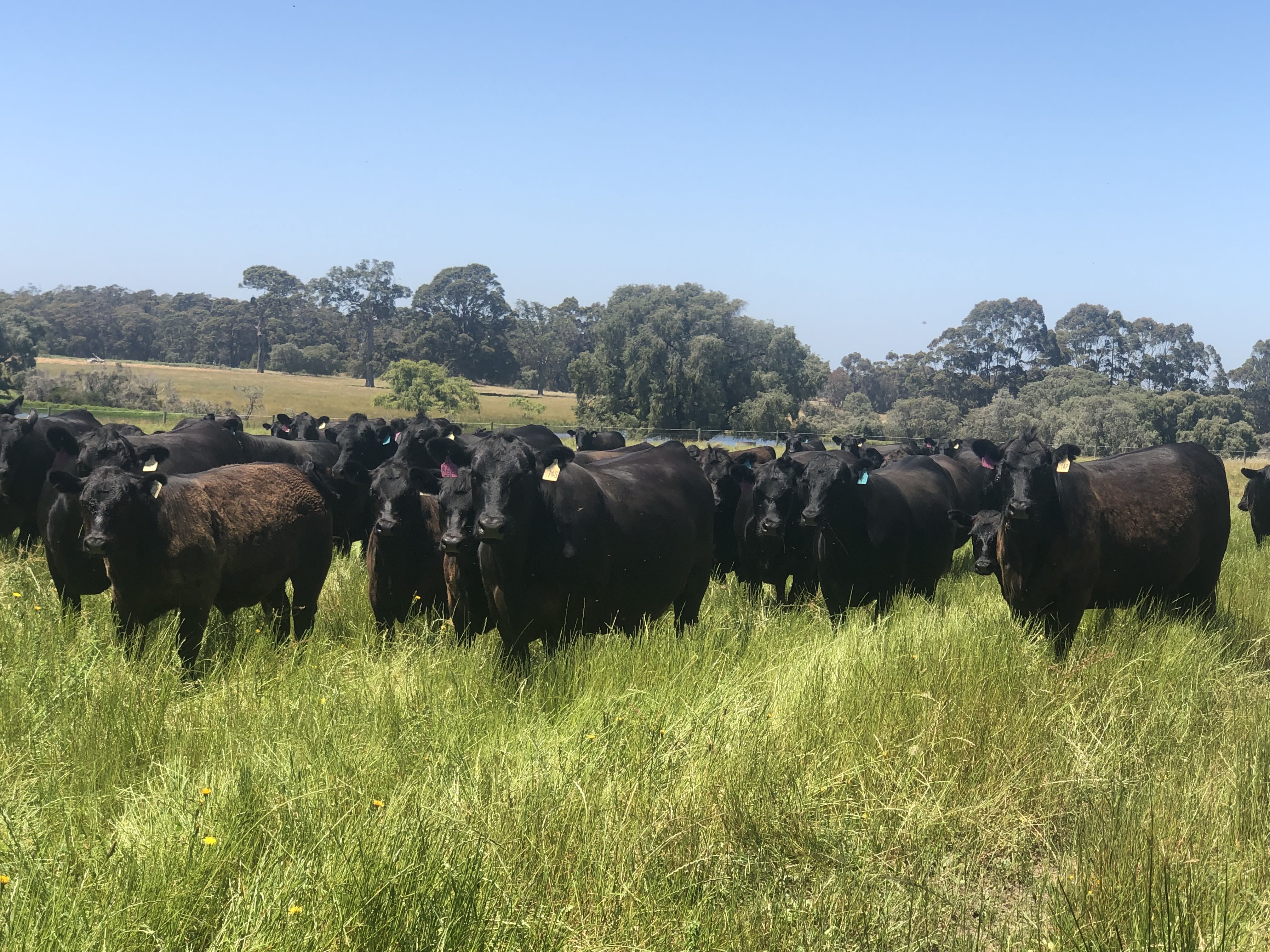
Desired outcomes
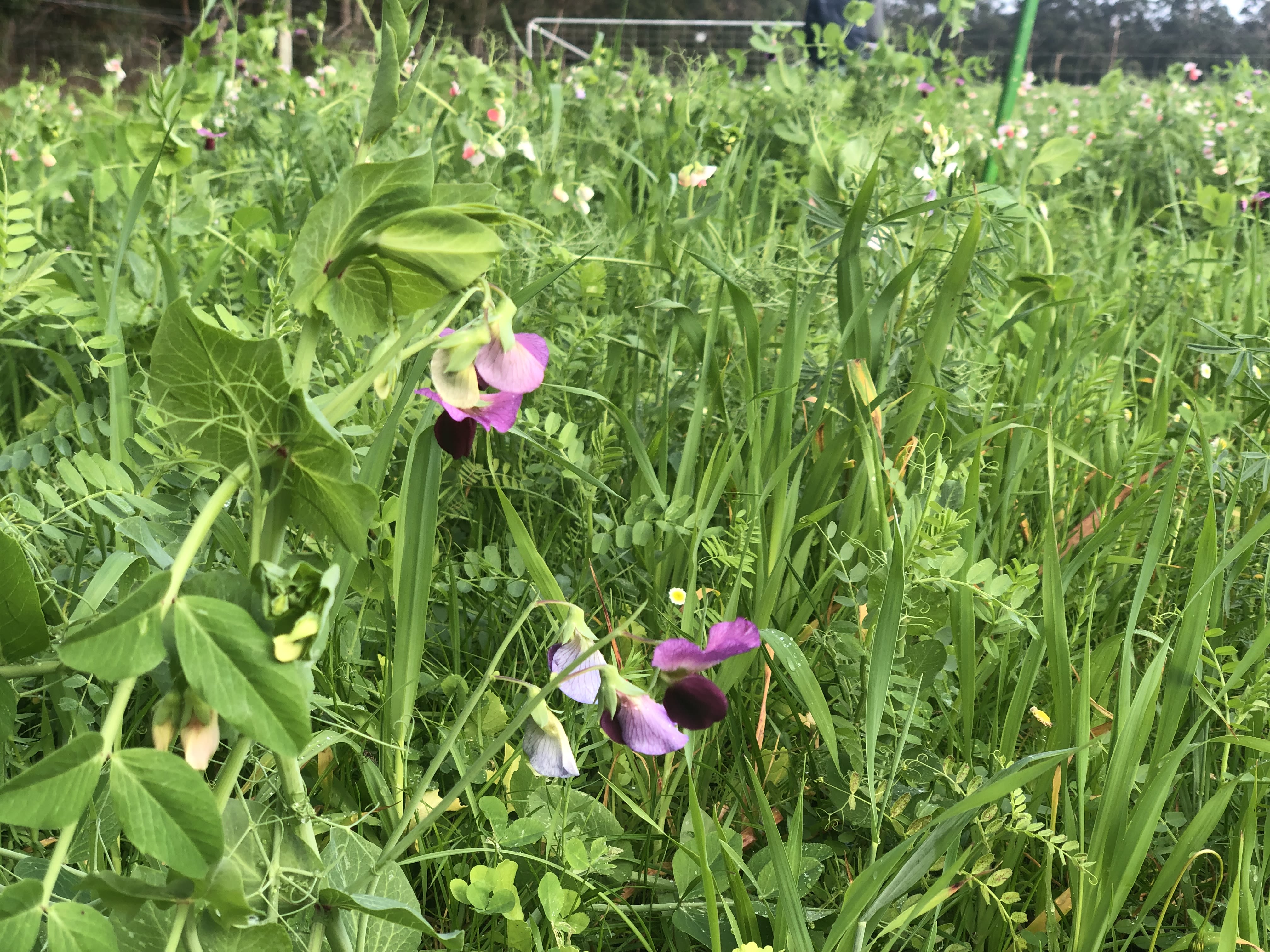
For Pete, the goals are clear. He wanted to live in harmony with the landscape and farm in a way that he feels is right for his family and the environment.
- To have a workable, practical farm plan that fits with a family lifestyle
- Better soil health
- Better pasture
- Grow the farm
- Create a sustainable, commercial farming business
"I'm going to continue seeking out information about perennial pastures in WA, working out the right mix and timings for my farm and how to include that in my farming system. My pastures are fairly run down, but they are already getting better through increasing the grazing density over small areas. As I improve my fencing I'll be able to do that in a more focused way."
The RAPP 2022 Program
The 2022 Regenerative Agriculture in Practice – A Whole of Landscape Approach project expands on both our 2020 (Grazing Management) & 2021 (Building Resilience) projects under the Augusta Margaret River Shire’s Environmental Management Fund.
The project includes 4 key elements:
- Whole Farm Planning
- Soil Health and Resilience
- Regenerative Grazing Management
- Exclusive Peer Group events and webinarsTraditional animation (also called cel animation or hand-drawn animation) was the process used for most animated films of the 20th century.
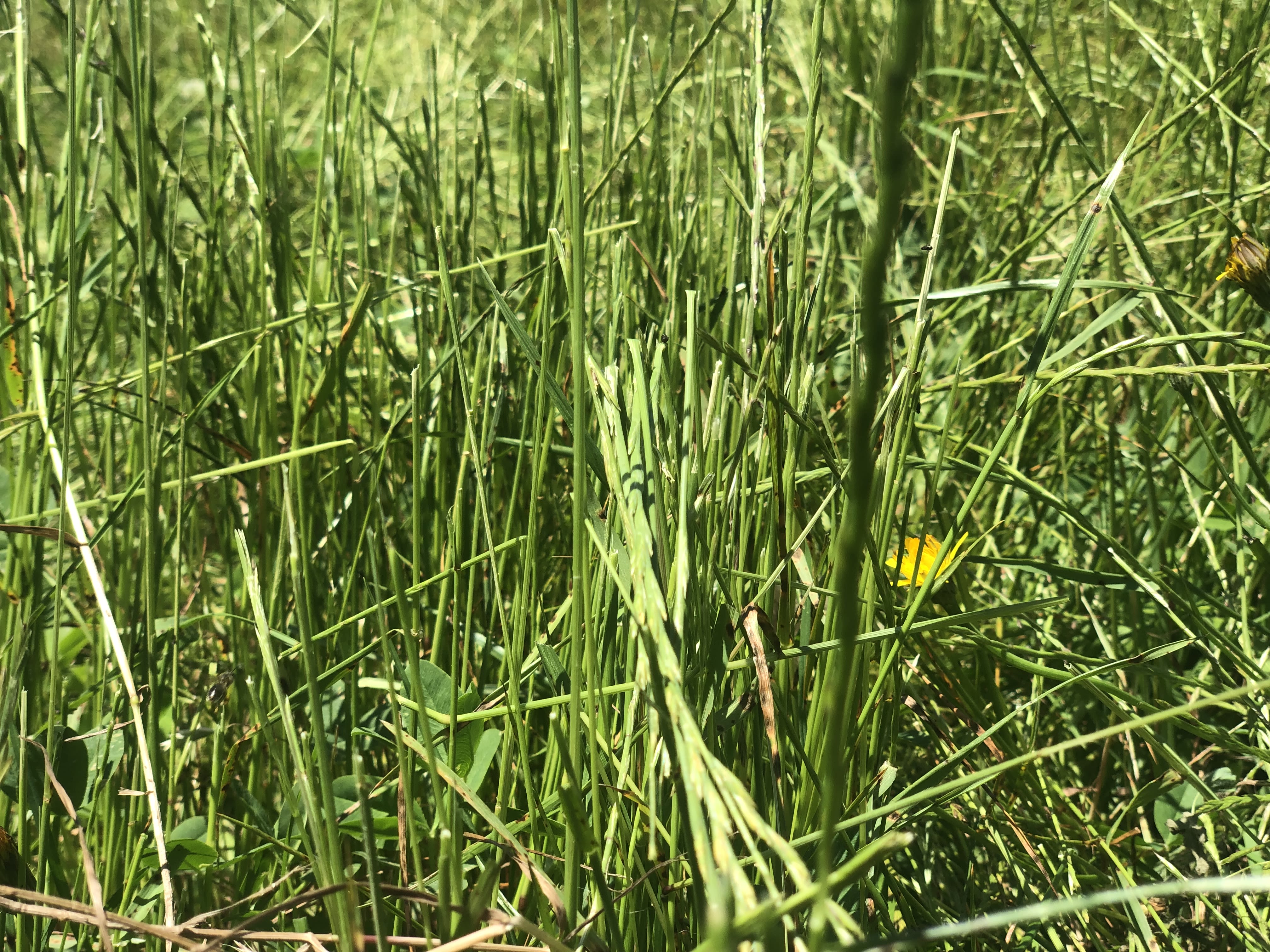
This case study forms part of the Regenerative Agriculture in Practice 2022 project. This project has been enabled through the Augusta Margaret River Shire Environmental Management Fund with support from Healthy Estuaries WA.
